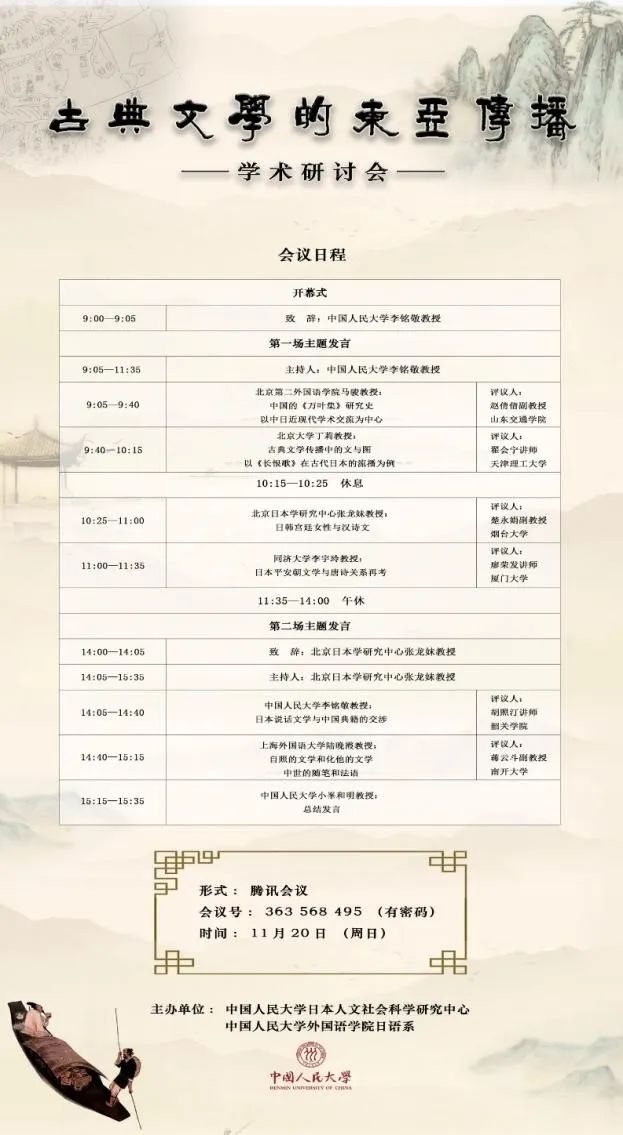Successful Online Academic Seminar on “The Transmission of Classical Literature in East Asia” Held by the Department of Japanese of the School of Foreign Languages at Renmin University of China
DATE: 2022-12-04
The online academic seminar titled “The Transmission of Classical Literature in East Asia” was successfully held on November 20th, 2022. This event was organized by the Research Center for Japanese Humanities and Social Sciences at Renmin University of China and the Department of Japanese of the School of Foreign Languages at Renmin University of China. Over 200 teachers, students, and scholars from various Chinese and Japanese universities and research institutions participated in this academic seminar, including Renmin University of China, Peking University, Beijing Foreign Studies University, Beijing International Studies University, Nankai University, Tongji University, Shanghai International Studies University, Xiamen University, Shandong University, East China Normal University, Waseda University in Japan, and the International Research Center for Japanese Studies.
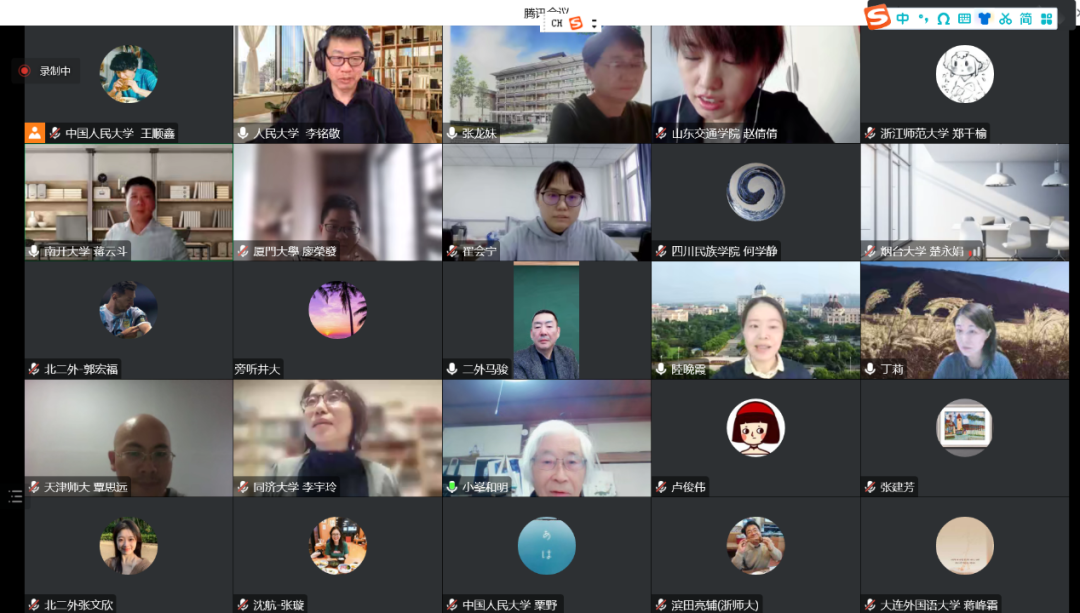
The seminar focused on the topic "The Transmission of Classical Literature in East Asia" and was divided into two sessions: one in the morning and the other in the afternoon.
The morning session began with an opening speech delivered by Professor Li Mingjing, Director of the Research Center for Japanese Humanities and Social Sciences at Renmin University of China, who also chaired the session. Four scholars presented their papers: Professor Ma Jun from Beijing International Studies University, Professor Ding Li from Peking University, Professor Zhang Longmei from the Beijing Center for Japanese Studies, and Professor Li Yuling from Tongji University. Their presentations were respectively followed by summaries and comments from Associate Professor Zhao Qianqian from Shandong Jiaotong University, Lecturer Zhai Huining from Tianjin University of Technology, Associate Professor Chu Yongjuan from Yantai University, and Lecturer Liao Rongfa from Xiamen University.
In a presentation titled “The History of Research on the Man'yōshū in China,” Professor Ma Jun provided a detailed overview of the research history and significant findings related to the Man'yōshū in China, while also discussing the future research prospects for this classical text.
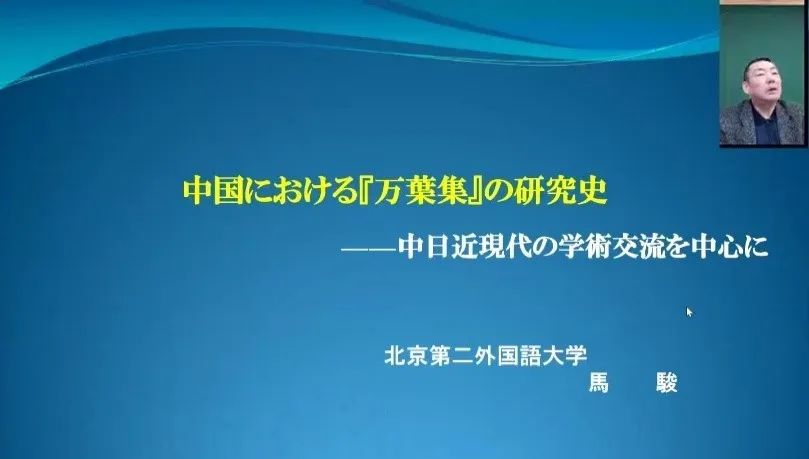
Professor Ding Li from Peking University presented on the topic “The Role of Text and Image in the Transmission of Classical Literature: A Case Study of the Chang Hen Ge in Ancient Japan.” Using existing Japanese editions of the Chang Hen Ge, including block-printed books, illustrated books, and picture scrolls, the annotated Chang Hen Ge Shou, and illustrated texts such as The Tale of Yang Guifei, she used these texts and images as material to provide a detailed interpretation of how classical literature works were received in Japan.
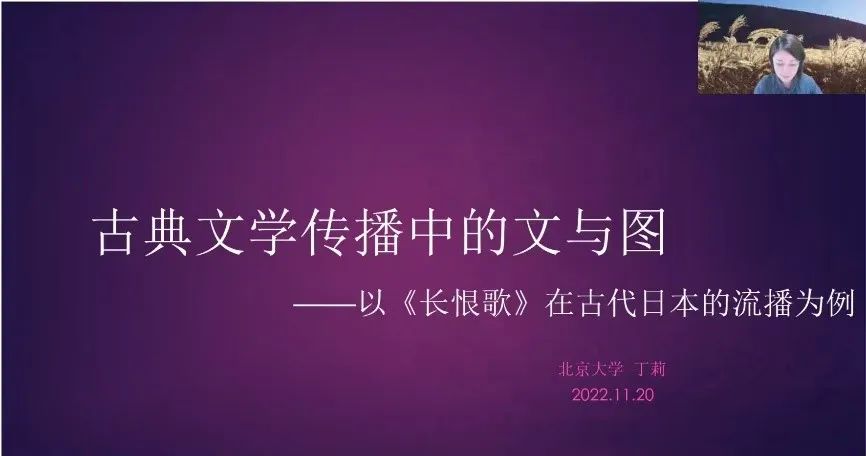
Professor Zhang Longmei from the Beijing Center for Japanese Studies spoke on the topic “Court Women in Korea and Japan and Chinese Poetry and Prose.” Drawing on the specific works of figures such as Ban Zhao, Concubine Quan, and Princess Uchiko, she explored the creation and evaluation of Chinese poetry and prose from the perspective of court women, offering a fresh perspective for the study of classical Chinese poetry and prose in China, Korea, and Japan.
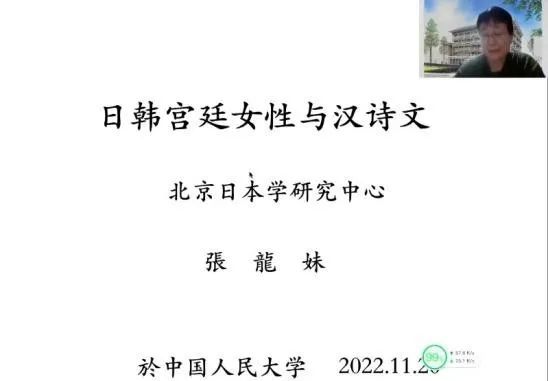
Professor Li Yuling from Tongji University delivered a speech on the theme “Re-examining the Relationship between Japanese Heian Period Literature and Tang Poetry.” She focused on the creation of poetic languages during the early Heian Period under Emperor Saga and his ministers. Professor Li pointed out that in the yuefu poems themed around Wang Zhaojun, Emperor Saga and his ministers creatively used the images of “Chang’an’s Moon” and “Chang’an’s Sun,” revealing the unique charm of Chinese-style poetry in the Heian Period.
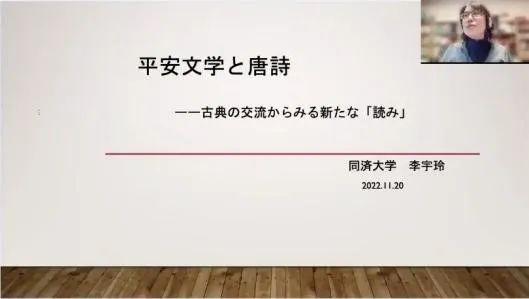
In the afternoon session, Professor Zhang Longmei from the Beijing Center for Japanese Studies delivered the remarks and chaired the meeting. Presentations were given by Professor Li Mingjing from Renmin University of China and Professor Lu Wanxia from Shanghai International Studies University. The presentations were summarized and reviewed by Lecturer Hu Zhaoting from Shaoguan University and Associate Professor Jiang Yundou from Nankai University, respectively.
Professor Li Mingjing from Renmin University of China presented on the topic “The Interaction between Japanese Setsuwa Bungaku and Chinese Classics.” He provided a comprehensive overview of medieval Japanese Setsuwa Bungaku, covering aspects such as concepts, classifications, compilations, and its relationship with Chinese classics. He highlighted new research paths for the study of Japanese Setsuwa Bungaku, including bidirectional research at the Setsuwa Bungaku level, interactions with documents of Song Dynasty, and the complexity of the transmission of Setsuwa Bungaku.
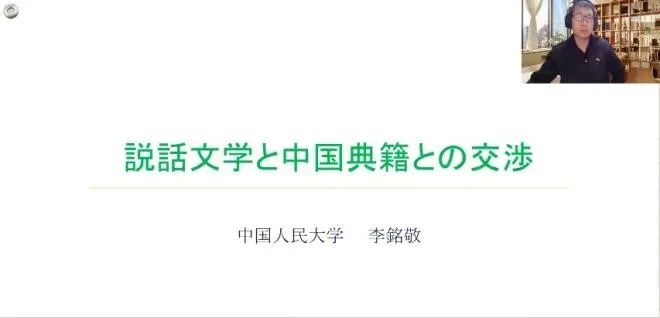
Professor Lu Wanxia from Shanghai International Studies University presented on the topic “Self-Reflective Literature and Other-Oriented Literature: Medieval Essays and Dharma Language.” She positioned essays and dharma language within the frameworks of self-reflective and other-oriented literature, respectively. Taking the representative medieval essays “Hojoki” and “Tsurezuregusa” as examples, she analyzed the relationship between essays and dharma language. Professor Lu pointed out that essays and dharma language are both important literary forms in the Middle Ages, sharing strong commonalities while also showcasing their unique characteristics.
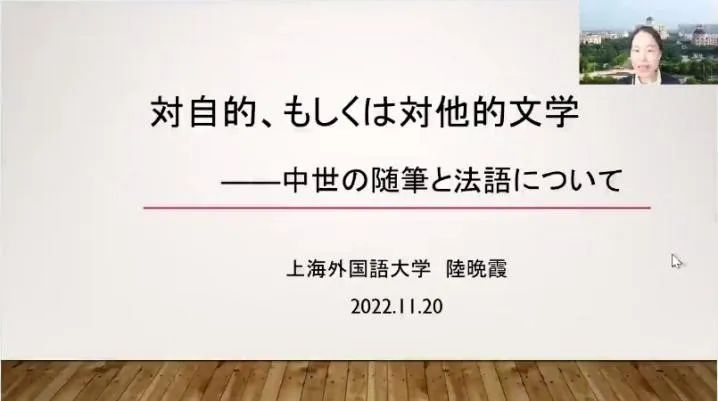
At the end of the conference, Professor Komine Kazuaki, a senior foreign expert at Renmin University of China, provided comments on the presentations of each scholar. While affirming the research conducted by the scholars, Professor Komine gave a systematic introduction to the meaning of “classical” in Japanese literature and offered his outlook on the future of Japanese classical literary studies. The symposium concluded successfully amidst lively discussions among the scholars.
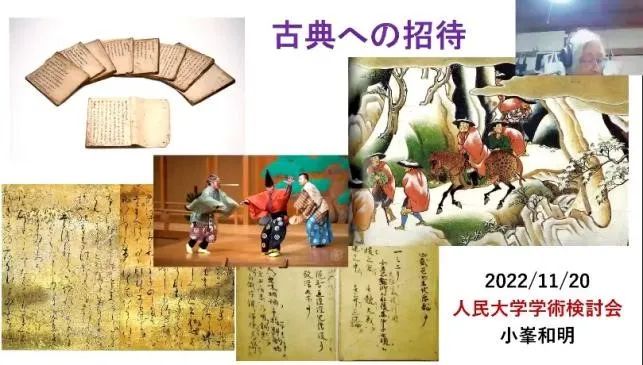
This seminar is not only an academic discussion between Chinese and Japanese scholars, but also a beneficial attempt to explore how to strengthen communication and exchange between the academic communities of China and Japan, and to jointly promote the development of East Asian academic research. In the context of the ongoing fluctuations of the pandemic, the online seminar offers a new way of discussion, eliminating barriers to communication among scholars and further fostering the prosperity and development of academic research communication.
